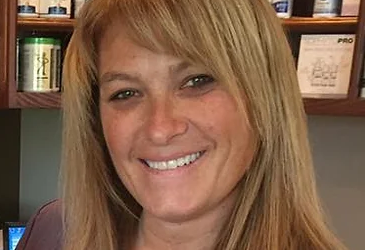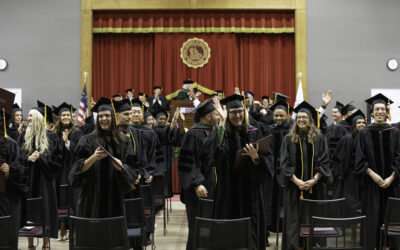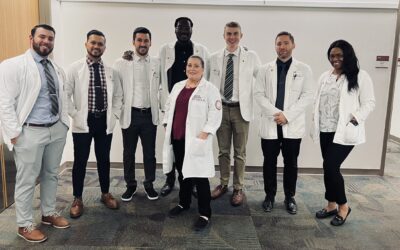In response to COVID-19 restrictions, National University’s naturopathic medicine program has found multiple ways to ensure student safety and continued learning. Once held in the Whole Health Center clinic, Grand Rounds presentations are now being conducted in a virtual format via Zoom meetings. For many students, this new format is not only safer, but more convenient.
Grand Rounds feature presentations by interns, faculty or guest speakers that explore a clinical question and focus on direct application of research information to patient care. The sessions are open to NUHS students in other specialties including chiropractic, acupuncture and oriental medicine programs so they may learn about naturopathic perspectives on patient care.
According to Amanda Bose, DC, ND, NUHS Chief Clinician of Naturopathic Medicine, the new virtual format has led to more attendance due to increased accessibility. As a result, there are plans to continue the same format into the future.
The virtual Grand Rounds allows interns to discuss recent patient cases as well as take questions from fellow interns as they would during in-person sessions. Last week’s virtual Grand Rounds featured a patient case involving the use of medicinal mushrooms. During COVID-19 restrictions, many interns have been able to continue to see patients virtually via telemedicine, a new format interns and clinicians now use to provide various types of patient care.
Ruby Sakyi-Addo, a 10th trimester naturopathic medicine intern, talked about a female patient in her 70s who first came to the Whole Health Center with lesions on the corner of her lips caused by the herpes virus, which the patient had since she was five-years-old. The patient would often have outbreaks when she was stressed out or experienced more sun-exposure. Sakyi-Addo recommended hydrotherapy treatment, a homeopathic remedy and Immunoberry, a liquid extract that includes various plant nutrients to help boost immune function, particularly from shiitake and maitake mushrooms.
“In other cultures, these mushrooms are regularly put in soups to help boost immune system,” Sakyi-Addo said. “It can be added to chicken vegetable soup to help with continuous replenishment.”
Sakyi-Addo conducted multiple follow-up visits through telemedicine with the patient. A week after the treatment, Sakyi-Addo said the patient’s lesions had stayed the same when the patient would usually have more or larger lesions. By July, the patient had no new outbreaks despite added stress from COVID-19 and sitting in the sun.
Thanks to telemedicine visits, Sakyi-Addo said she was able to successfully monitor the patient and adjust the treatment plan as need.
“If there is no follow-up visit, the patient may continue taking the supplements when they are better and do not need to take it any more. Also, if they are not doing as well as expected, the visit will help me adjust the treatment plan and give different supplements,” Sakyi-Addo said.
During telemedicine visits, interns instruct patients on how to take their own temperature, pulse rate and blood pressure. Interns are also able to refill supplements and counsel patients on how to deal with stress during these social distancing times.
Sakyi-Addo saw about 16 patients via telemedicine before meeting her clinical requirements. While there are some drawbacks particularly for Sakyi-Addo who considers herself a people-person, she said it is very convenient for patients with busy lives. She added that telemedicine may also help new NDs who aren’t ready to invest in the overhead costs of a building yet.
“I never thought I was going to be doing telemedicine because I love to be with people, but I am so glad I had the experience to practice it,” Sakyi-Addo said. “I have learned how easy it is once you get started, you just have to try it once and you will love it.”
Sakyi-Addo said she expects more patients to ask for virtual visits in the future. “Who will not want to be in the comfort of their home to see the doctor?” she said.




0 Comments